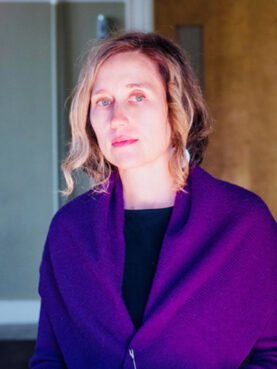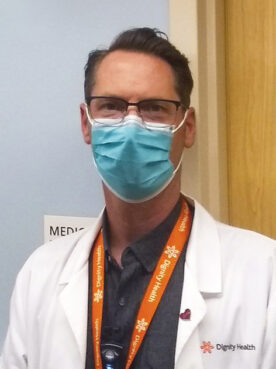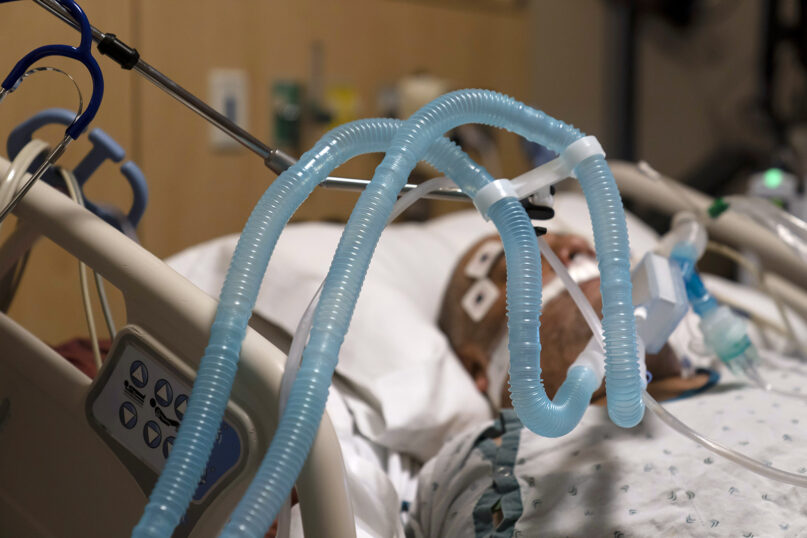(RNS) — Brent Beavers, a Buddhist hospital chaplain in the San Francisco Bay Area, had been on the job for less than a year when the COVID-19 pandemic hit. The virus upended routines at the intensive care unit where he was completing his residency, even as restrictions on visitors, meanwhile, changed how he did his job.
Unable to be together, patients and families needed more help with the heightened anxiety, sorrow and grief that come with illness and death. He was often a patient’s only human contact besides the busy doctors and nurses.
“Being present with someone, and where they are in their suffering, is a skill that Buddhist chaplains can offer patients,” said Beavers. “Having a calm, connected presence for someone who feels isolated and experiencing old age, sickness and death surrounded by clinicians is tremendously helpful.”
The Buddhist contemplative approach to chaplaincy has spurred a new interest in Buddhism in the medical environment.
RELATED: Dying ‘the Buddhist way’ gains in hospice centers in the West
“This is a profession that’s gaining a lot of respect at this time,” said Roshi Joan Halifax, abbot of the Upaya Zen Center, a monastery in Santa Fe, New Mexico, and the founder of its chaplaincy program. “There’s moral distress, moral injury, moral outrage, moral apathy, moral disengagement — and we address all of this.”
Founded more than a decade ago, Upaya’s program has lately been drawing doctors, nurses and social workers from other faiths or no faith, seeking new skills for their caregiving. Halifax said this year’s class has a waiting list, and students have already enrolled for next year.
Halifax said she was inspired to create the program after spending decades in the end-of-life care field and seeing the the benefits that Upaya’s focus on contemplative practice could bring to what she saw as an essential role in health care.
Upaya’s two-year training program, which accepts up to 30 students in each class, focuses on Buddhist philosophy, social engagement, ethics, meditation skills and the nature of suffering. Students undergo Buddhism’s rigorous personal and communal spiritual formation and are offered an opportunity to go through jukai, an initiation ceremony in which a person vows to follow the Buddhist precepts and receives a dharma name, according to Mary Remington, the program’s director.

Jamie Beachy. Photo via Naropa University
Upaya is not the only Buddhist institution that has seen increased interest in chaplaincy during the pandemic. A similar program at Buddhist-inspired Naropa University in Boulder, Colorado, which offers a Master of Divinity degree as well as clinical pastoral training on site, has seen larger numbers of applicants, including from non-Buddhists, said Jamie Beachy, director of Naropa’s Center for Contemplative Chaplaincy.
While many Naropa students work in traditional settings such as hospitals and hospices, Beachy said the program also pushes boundaries of what chaplaincy looks like, serving undocumented immigrants living in sanctuary and patients experimenting with psychedelic therapies for post-traumatic stress disorder or palliative care.
The program focuses on establishing deep contemplative practice such as meditation, prayer or spending time in nature. Key to every discipline is developing compassion, which allows chaplains to be present with suffering, Beachy said.
“The insights of contemplative chaplaincy, including the capacity to be warm-hearted, while also having a confident stability in one’s capacity to navigate suffering and difficulty is very much needed in the world as crises seem to be intensifying,” she said.
As a Buddhist chaplain, Beavers, who studied at the Institute of Buddhist Studies in Berkeley, California, said he draws upon Buddhist teachings and his own sense of compassion to help patients find their own sources of resilience.
If Buddhist chaplains are becoming more common, they are still finding their place in the health care world. The Association of Professional Chaplains — the largest interfaith certifying body in the U.S. — counts only 23 Buddhists among its approximately 5,000 active chaplains, according to Jana Troutman-Miller, APC’s chair of certification.
Since chaplains don’t need a certification to work in many hospitals, prisons and schools, this is almost certainly an undercount. Beavers is still working on fulfilling all of the requirements for APC certification even while serving as coordinator of his former school’s chaplaincy program.
RELATED: Reckoning with race, Black Buddhists seek space for healing in the dharma
The APC has been working in recent years to make the certification process more accommodating to Buddhist practice, Troutman-Miller said. Since many Buddhists study through mentored education, rather than at seminaries or divinity schools, the APC adopted a process in 2006 to allow Buddhist applicants to apply for equivalency in subjects such as theology, philosophy or psychology.

Brent Beavers. Photo by Lisa Petrocchi
The organization recently set up a task force to develop more inclusive language for Buddhist applicants, as well as an equivalency process for another certification requirement known as “endorsement,” in which the candidate’s denomination or tradition vouches for the chaplain’s abilities.
For Buddhists such as Beavers, chaplaincy is more than doing good; it’s a chance to achieve right livelihood — one of the practices that lead to liberation, according to Buddhism’s Noble Eightfold Path. Prior to chaplaincy training, he worked in corporate communications for a Fortune 500 company.
“As time went on, I thought, ‘I really want to do something different and something meaningful,’ but I didn’t know how or what,” he said. “Chaplaincy never crossed my mind because as a Buddhist, it’s one of those fields that’s been dominated by Christians.”





